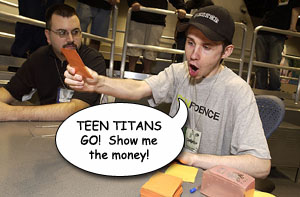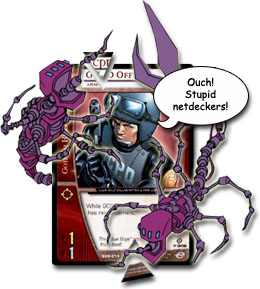
I was in two minds about how to write this article. While one of these minds may have been made up for the sake of keeping my theme going, I urge you to make up your own mind about which of my dual outlooks to go with. I won’t mind either way.
One of the cool things about comics is the way in which they approach good and evil. When you’re young, good and evil are very straightforward concepts—polar opposites easily distinguished in the mind. At the most basic level, superhero comics work in exactly the same way. There are heroes and villains, and each has their own core motivations that are either good or evil. So far so good. As one gets older, though, the only thing that remains clear is that nothing is as simple as it first seems.* Is it always wrong to lie? Honestly, I don’t think so. So too do our heroes become more interesting in their moral outlooks. Superman and Batman are both good guys, but one need only check out virtually any Justice League title to see that they don’t always see eye to eye on methodology.
With respect to finding a good deck to play in tournaments, there is also a bit of polarity among players as to methodology, and it’s not immediately obvious which is better. I could sit on the fence here, but rather than any such shilly shallying about, I am proud to sit on . . .
The side of the Evil Machine of Doom!
Hello. My name is Tim Willoughby, and I am an internet writer. It has been seven days since my last article.
Being on the coverage team for various high level events, I get to see a lot of decks, a lot of deckbuilders, a few successes, and one whole mountain of failures. It makes me chuckle that there are players out there who will actively spoil their chances of winning (at the cost of time, effort, and money) rather than pay attention to what I hope is pretty clear information about the fast track to success in the game.**
The idea of net decks is not a new one. When one combines the great information-sharing resource that is the internet with the world of TCGs, it is inevitable that people will work off of the ideas of others from around the world. What is interesting to me is the way that the player of such decks frequently gets derided by those who haven’t cottoned on to the message yet.
When one taps into the power of the internet to get a leg up in deck design, it is a positive move regardless of the level of your game. As a beginner, one can learn huge amounts about the game by playing a deck that has been well designed and runs smoothly. A consistent deck will not have the sort of crazy swings that sometimes occur with homebrew decks, which occasionally have amazing games but all too often fall short. This means that you can focus your valuable time on learning how to win the interesting, close matchups where skill is the most important factor. You will also learn what to look out for when building your own decks and hopefully discover synergies that aren’t necessarily immediately apparent. While a decklist may originally come from the internet, making it your own by learning how to play it and developing your own strategy with it is a viable way of expressing yourself that will often lead to amazing results.
 For a single deck, there can be multiple ways of approaching situations that are perfectly reasonable, and individual play style will often be a factor in the route one chooses to navigate to victory. I know that at PC Indianapolis 2004, where I ran a Titans build that our team had come up with, I played the deck differently than other members of the team. We all made good money, though; each of us returned from the US well in profit, despite having spent over $1,000 to get there.
For a single deck, there can be multiple ways of approaching situations that are perfectly reasonable, and individual play style will often be a factor in the route one chooses to navigate to victory. I know that at PC Indianapolis 2004, where I ran a Titans build that our team had come up with, I played the deck differently than other members of the team. We all made good money, though; each of us returned from the US well in profit, despite having spent over $1,000 to get there.
Having a great decklist is often the key to unlocking this strategic flexibility. Conveniently, places like Metagame.com are a great place to find such lists.
As your level of play skill progresses, the use of net decks becomes not just a tool for improving the raw quality of your play, but also for improving your win percentages. When one looks at an event like PC Indianapolis or PC New York 2005, there was a consensus best deck that was represented in higher numbers than any other. The interesting thing is that it was represented in greater than proportional amounts at the top of the standings at the end of Day 1 and in the Top 8. Decks don’t receive the accolade of “best deck” lightly. They tend to have the key features of consistency and power, which make them unlikely to have many poor draws and able to do better things with “average” draws than their competition.
The rogue decks in the field will often be forced to look further and further outside the box in order to compete with the best decks, and as such, will take a hit in terms of raw power that can be hard to make up for in terms of consistency or a favorable matchup. Additionally, depending on the field, it is quite easy for a deck that has been carefully attuned to a metagame (in the hopes of beating a specific deck or decks) to fall to the other more esoteric deck choices in the room, effectively allowing the best deck to continue to do its job—to win big.
There is also a big scary combo in just about every format I have ever encountered that can be very hard for a rogue deckbuilder to overcome. The really good deckbuilder plays the best deck. There are a number of things that put players over the top in terms of their ability at the Vs. System. Raw play skill is one, as the game is complicated enough that not making as many mistakes as one’s opponent will frequently eke out a win for you. Knowledge of the metagame is another. Some of the true greats of the game are the ones who can look at a format and determine what is important about it. This not only lets them play the best deck in the field (even if it is a net deck that is relatively common knowledge), but it also lets them see where the threat is coming from so that they can tweak their list or game plan accordingly.
 Adam Bernstein won Pro Circuit New York playing Sentinels. At the current stage in testing, it seems not unlikely that Sentinels will be well represented at PC LA in November. Bans notwithstanding, it is quite likely that the lists will not be overly similar. The beauty of the decklist that Adam played in New York was that it took into account the potential threats to its dominance (decks that looked to eschew regular combat for control and a more powerful late game than that of the robots) and answered them with appropriate tech. Apocalypse almost single-handedly turned a very rough finals matchup for Bernstein against Jason Hager’s New School deck into one that was far from straightforward for Hager. Micro-Sentinels worked similar magic against decks that looked to do something tricksy outside of combat with scads of smaller heroes. The icing on the cake for Bernstein? Rather than having to go through from scratch to construct the finest deck he could for the metagame, he simply had to make a few tweaks to an established decklist and focus the bulk of his preparation time on testing.
Adam Bernstein won Pro Circuit New York playing Sentinels. At the current stage in testing, it seems not unlikely that Sentinels will be well represented at PC LA in November. Bans notwithstanding, it is quite likely that the lists will not be overly similar. The beauty of the decklist that Adam played in New York was that it took into account the potential threats to its dominance (decks that looked to eschew regular combat for control and a more powerful late game than that of the robots) and answered them with appropriate tech. Apocalypse almost single-handedly turned a very rough finals matchup for Bernstein against Jason Hager’s New School deck into one that was far from straightforward for Hager. Micro-Sentinels worked similar magic against decks that looked to do something tricksy outside of combat with scads of smaller heroes. The icing on the cake for Bernstein? Rather than having to go through from scratch to construct the finest deck he could for the metagame, he simply had to make a few tweaks to an established decklist and focus the bulk of his preparation time on testing.
While deckbuilding is certainly an art form in and of itself, using the world of Vs. knowledge that has already been discovered is not quite the same sort of hackery that copying another comedian’s jokes or covering something by The Beatles might be. I like to think of positive net decking as being a member of a really large game club. You see what other people are doing, you think about it, you incorporate their ideas with your own, and everybody wins. Einstein could not have come up with the Theory of Relativity if Newton hadn’t laid some of the groundwork with his Principa Mathematica. You don’t need to re-invent the wheel in Vs. System, just be sure that you drive really, really well.
Have fun and be lucky,
Tim “Would Copy The Beatles and Hope that The Beatles would Copy His Decks” Willoughby
timwilloughby@hotmail.com
* At least in my case. It’s entirely possible that I’m just gradually growing into my role as an evil European baddie in a Die Hard film. I do have a beard now. And quite a sinister laugh. If this is the case, then much of the rest of the paragraph is moot. I would just take it as a big evil monologue, if I were you.
** Okay, if I’m honest, it makes me do a big evil laugh.